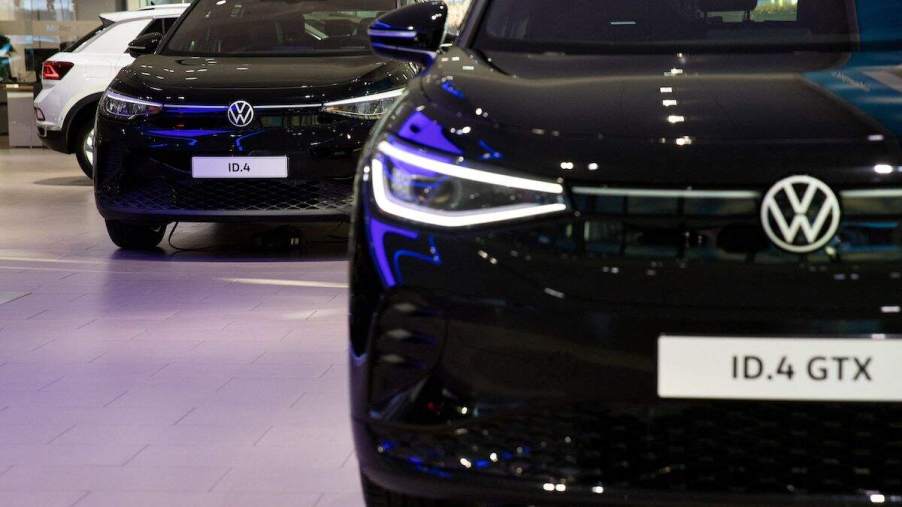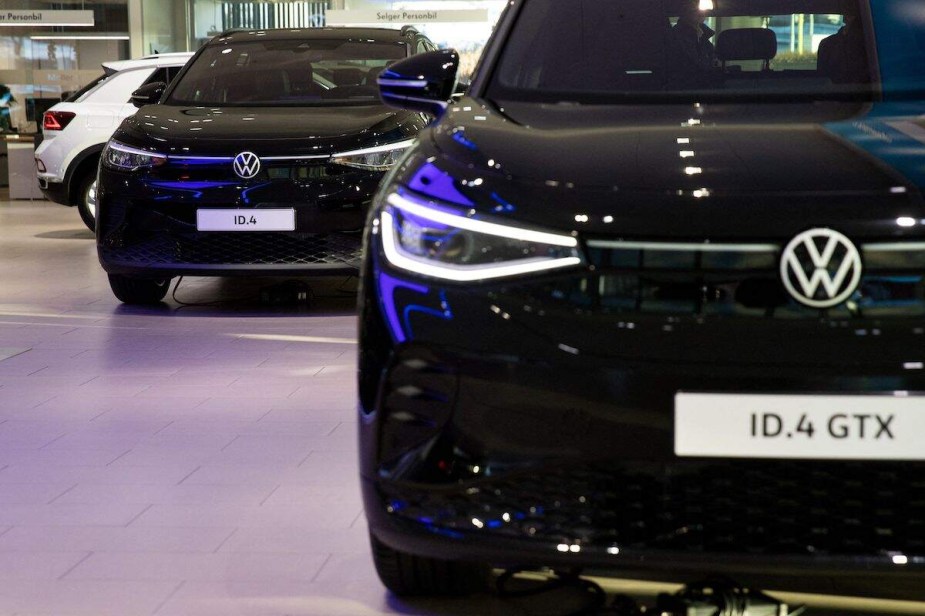
Volkswagen ID.4 Owners Can Only Get a Tax Credit if Their EV Was Built in Tennessee
Recent changes to the EV tax credit are disqualifying many electric vehicles, hybrids, and plug-in hybrid vehicles from qualifying for tax savings under the new structure.
According to the revised regulations, several models of the Volkswagen ID.4 will remain eligible for the tax credit, but an odd restriction could wreak havoc on the EV industry. Owners of the electric compact SUV can only take advantage of the EV tax credit if the vehicle gets assembled at a manufacturing plant in Tennessee.
Changes to the EV tax credit structure you need to know about

Revisions to the EV tax credit structure stem from the Inflation Reduction Act of 2022, implemented by the Biden Administration to address healthcare, climate change, taxes, and other economic issues.
According to Consumer Reports, “Because of new rules about where new EVs must be built and where their batteries must be sourced, the number of new EVs eligible for a tax credit has shrunk from prior years.” Many vehicles that qualified in 2022 may no longer be eligible for the tax credit in 2023. Effective March 2023, restrictions surrounding the source of batteries and other components will be enacted, making electric vehicles such as the Volkswagen ID.4 ineligible.
The key provisions of the updated rules include a 200,000 vehicle cap on the number of Tesla, Toyota, and GM plug-in hybrids and EVs that can take advantage of the tax credit. High-end EVs such as the Tesla Model S, Lucid Air, and GMC Hummer will only qualify if the vehicle is leased and not purchased. The new structure also includes an income cap of $150,000 for buyers or $300,000 for married couples filing a joint tax return.
The most drastic change is the government’s decision to do away with the EV tax credit, which ranges between $3,751 and $7,500 if the automobile is not assembled in a North American plant. In addition to the Volkswagen ID.4, other electric vehicles affected by this revision include the Toyota bZ4X, Subaru Solterra, Kia EV6, BMW i4, and Hyundai Ioniq 5.
The only Volkswagen ID.4 models that qualify for the EV tax credit
According to IRS guidelines, a vehicle must have “undergone final assembly in North America” and not exceed an MSRP of $80,000 for SUVs, vans, and pickup trucks and $55,000 for other vehicles.
While the 2023 Volkswagen ID.4 models abide by these rules, only those made at the U.S. Tennessee plant qualify, with any being shipped from overseas deemed ineligible for the EV tax credit.
The 2023 SUV models that qualify include the Pro, Pro S, S, AWD Pro, and AWD Pro S, but only if assembled at the Chattanooga plant. Front-wheel-drive versions must have an MSRP of $55,000 or below, and all-wheel drive versions must be listed below $80,000 to qualify.
How to determine if your Volkswagen ID.4 qualifies for the tax credit
Volkswagen is not the only automaker affected by this updated tax credit structure. Now referred to as the Clean Vehicle Credit, eligibility for “final assembly in North America” applies to plants in the United States, Canada, Puerto Rico, and Mexico.
If Volkswagen and other European and Asian EV manufacturers decided to move production to any of these regions for vehicles sold in the U.S., it could impact the tax credit incentive. But, until that happens, an EV will only be eligible if assembled in North America.
Since some automakers use various build locations, check the VIN to determine the final assembly point to see if your EV qualifies under the new guidelines.


